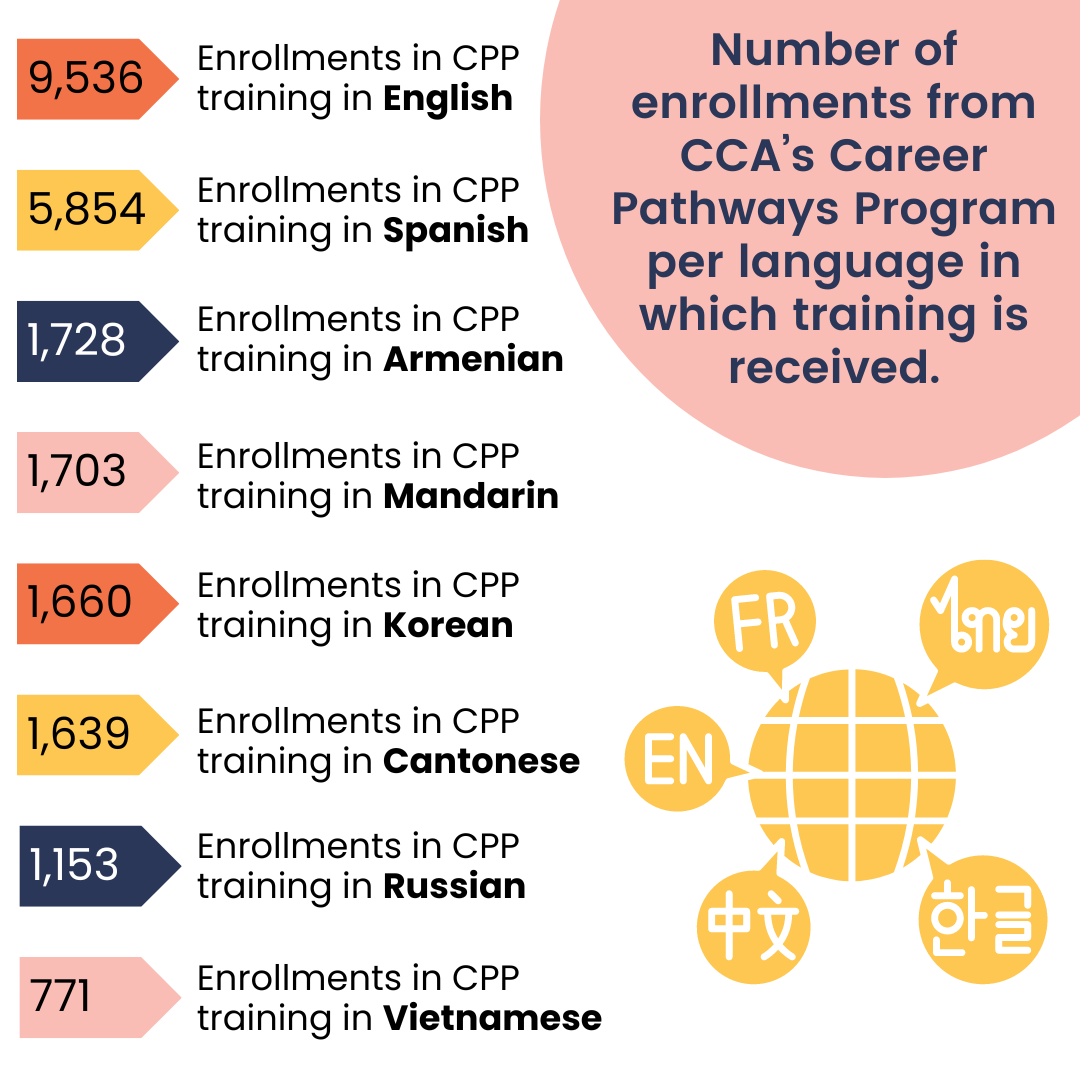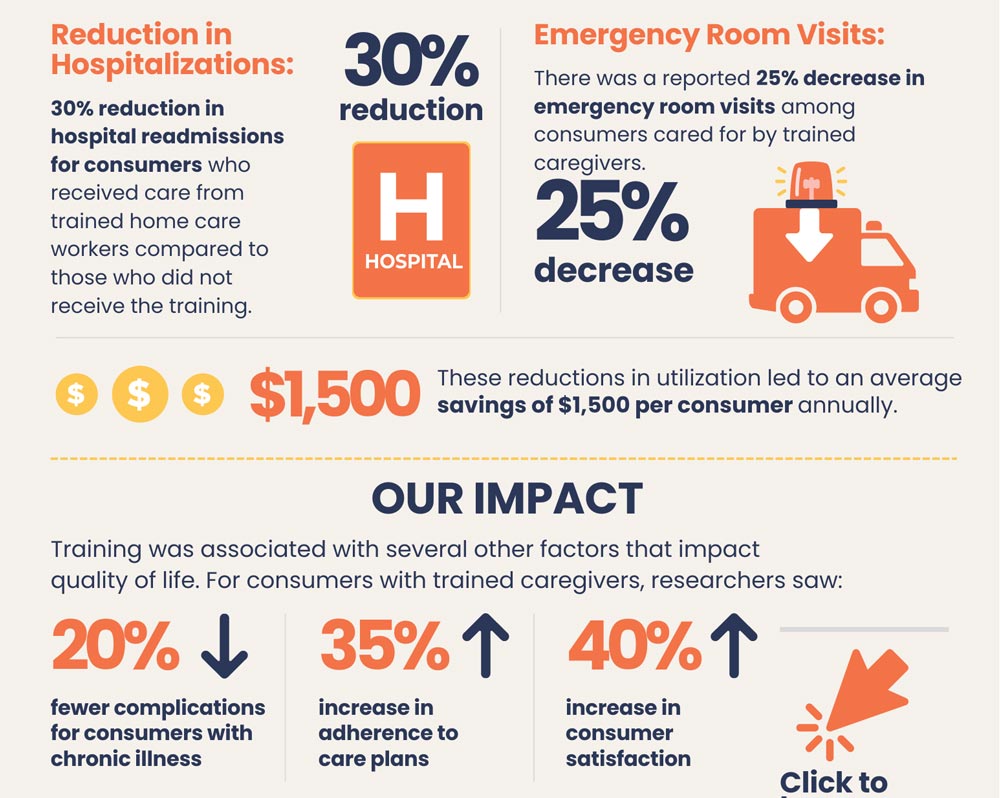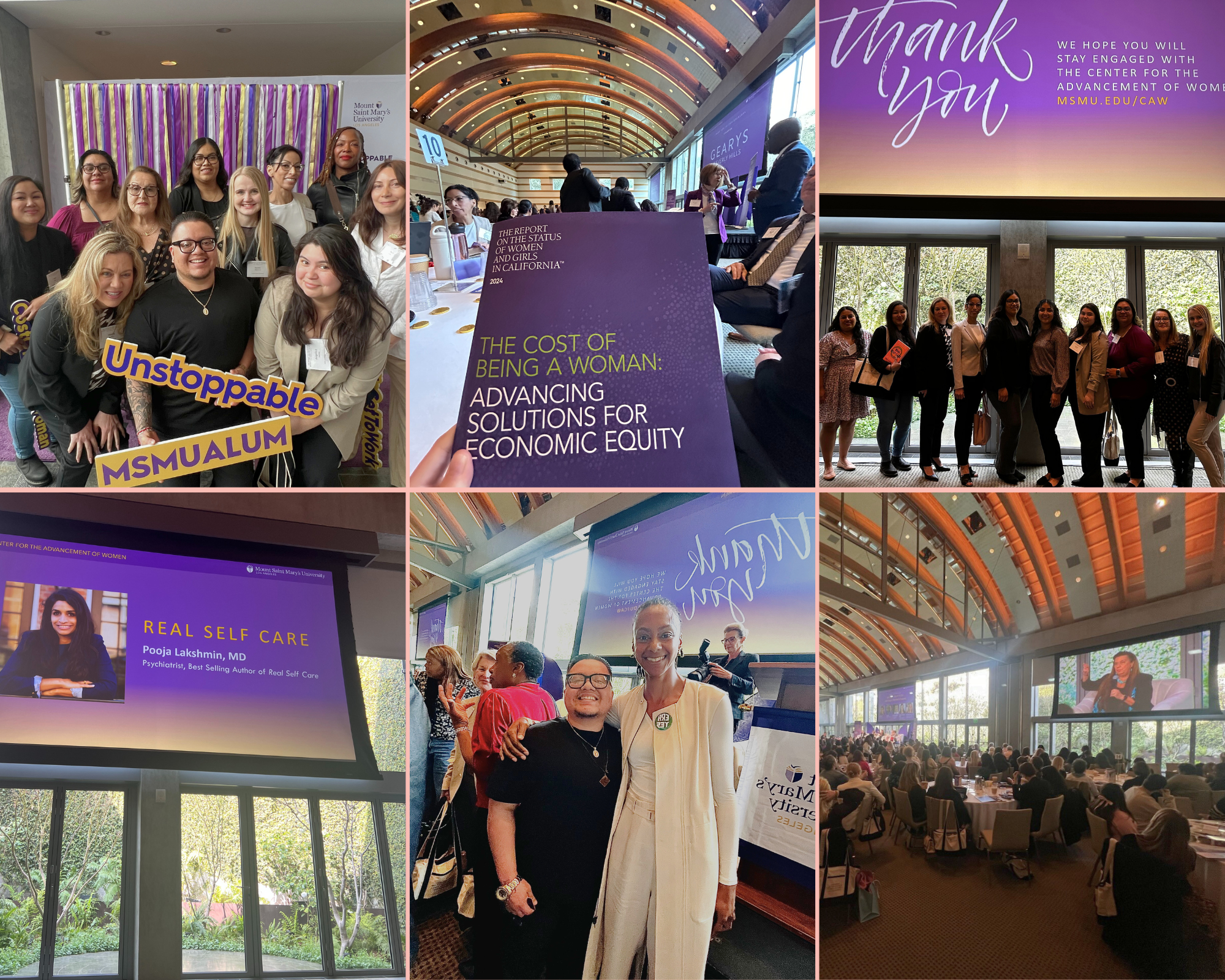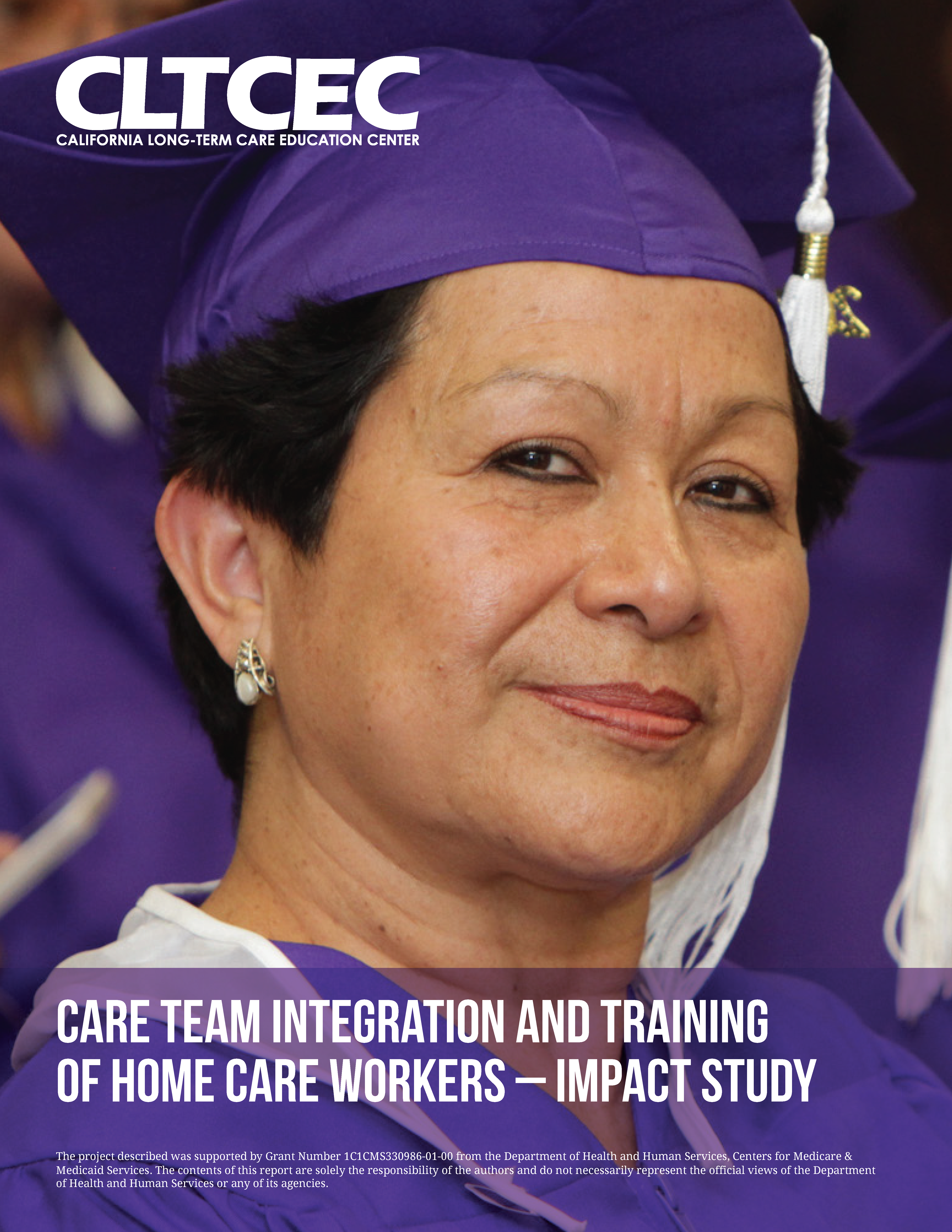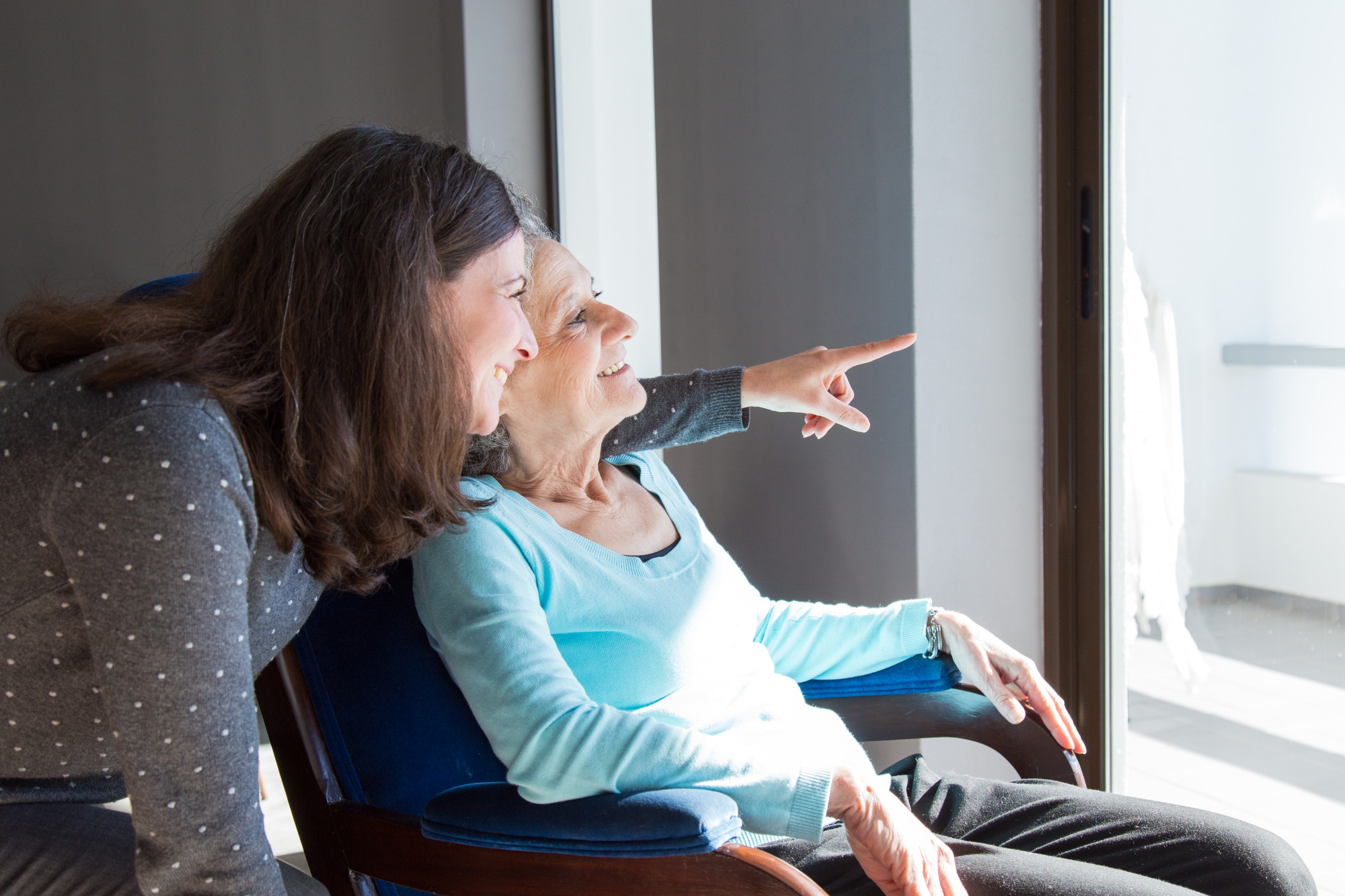As California’s largest provider of free and accessible caregiver training, the Center for Caregiver Advancement (CCA) makes sure our programs are understandable to as many as possible. By offering our courses in many languages, we strive to create spaces where all caregivers can learn, regardless of background.
Offering Caregiver Training in Multiple Languages
Accordingly, CCA offers In-Home Supportive Services (IHSS) training in multiple languages. For the state’s IHSS Career Pathways Program, CCA teaches the courses in seven languages in addition to English: Spanish, Korean, Mandarin, Armenian, Cantonese, Russian, and Vietnamese.
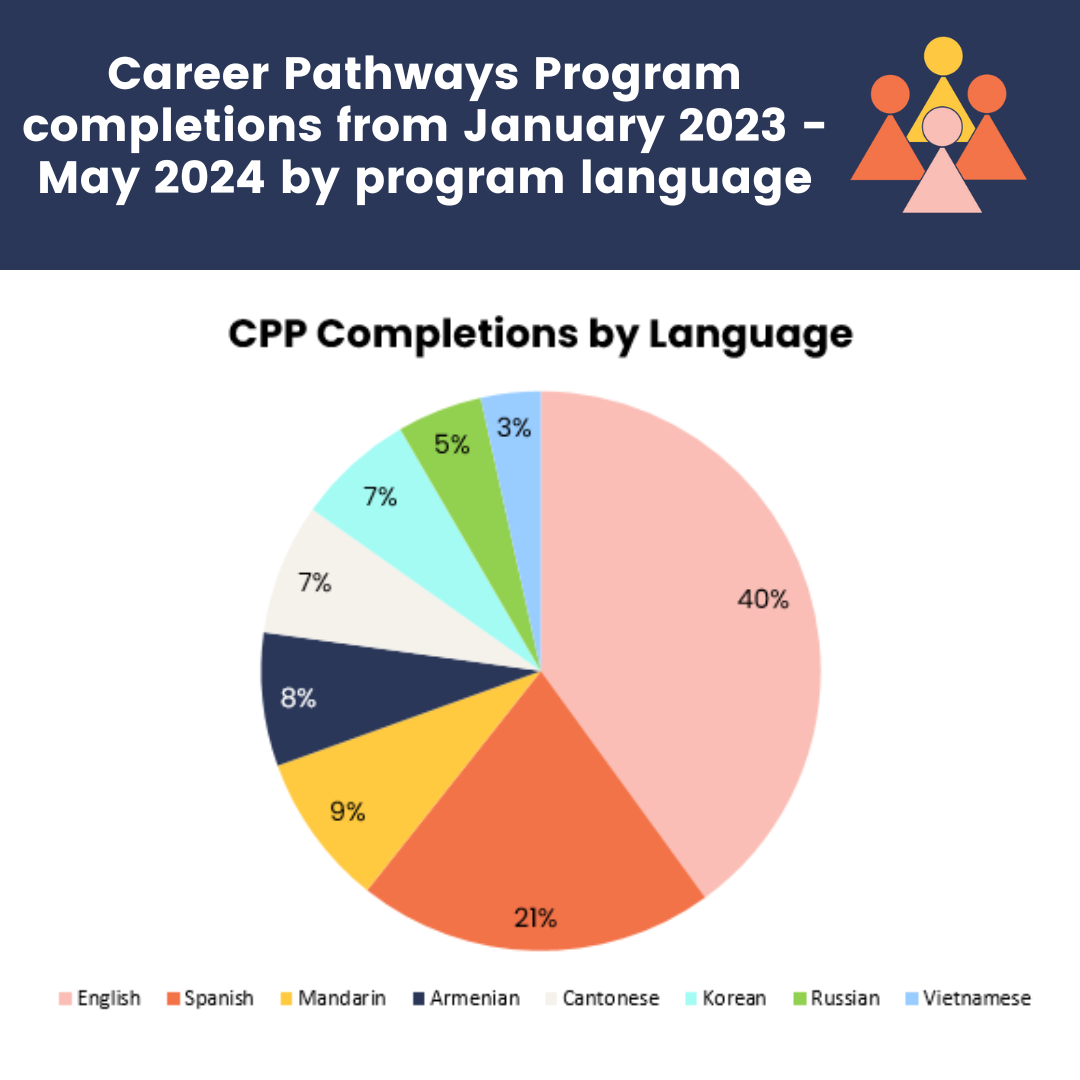
Quality of care should not be limited by language barriers for immigrant communities. Offering IHSS training in multiple languages means that more of California’s immigrant populations and immigrant families have access to caregiver education.
An Immigrant Caregiver Appreciates Developing Skills in Mandarin, Her Native Language
Fei Tian is a part-time Chinese language teacher and part-time IHSS provider for her parents. Her weeks are spent divided between time with her father and mother who live in different towns and each have their own unique needs.
Finding Caregiver Skills Training Offered in Her Language Was a Game-Changer
Fei is a Career Pathways Program student who takes courses in her first language, Mandarin. “Having the training in my first language is very important,” Fei said, “It is so beneficial because [in Mandarin] I understand everything and I’m more ready and able to learn.”
Living in the United States as immigrants from China, Fei and her parents often face language barriers. For example, Fei has had to accompany her father to his appointments. Sometimes he has needed an interpreter to understand his condition.
Having the choice to take the training in Mandarin made a huge difference for Fei and her parents. After taking the CCA class, she now understands their needs better, and can give them a higher quality of care.
“I came from China, but there are people from Russia, Japan, and Korea. They all want to learn in their own language, where they can readily benefit from [the training]. We are very happy that we have this kind of opportunity,” Fei said.
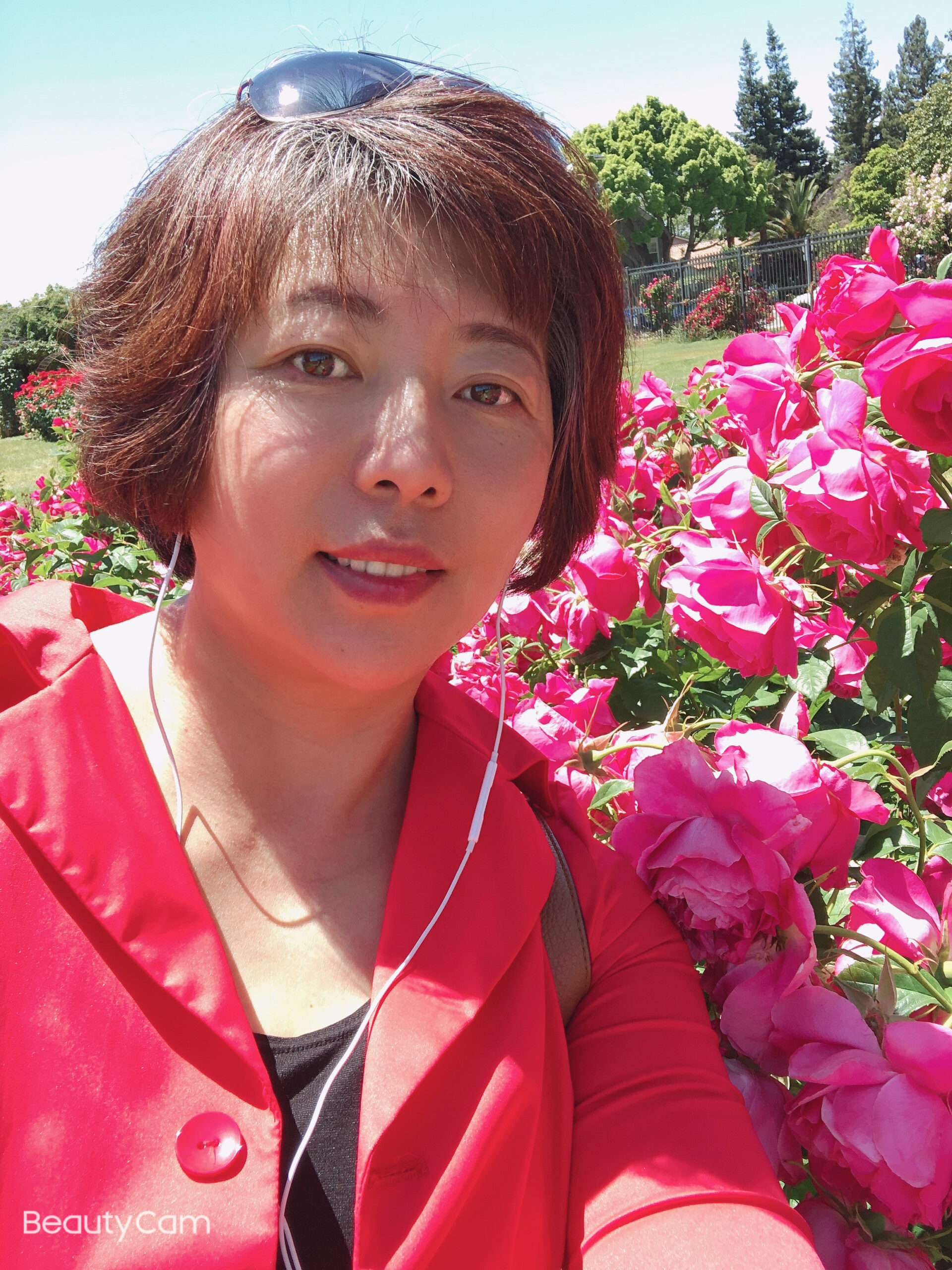
Bill Zhang, who also took CCA’s multi-week IHSS training program in Mandarin, shares Fei’s opinion. “I think the fact that the training is offered [in other languages] is extremely important,” he said. Bill and his classmates all agreed that they were able to learn so much new material thanks to it being taught in Mandarin, the language in which they are the most comfortable.
Spanish is the second most widely spoken language in California and is the most popular language among all non-English courses provided by CCA. Many of our state’s caregivers can take advantage of free IHSS training in Spanish, just like Elka Ventura Escobar.
She took the multi-week IHSS Essentials course. Elka is her mother’s caregiver and said the lessons helped improve their relationship.
Elka’s mother was a lawyer in their home country and the decline in her health and cognitive abilities has been challenging for Elka to navigate. The course offered in Spanish meant that her mother was able to follow along with her. They both learned valuable lessons that improved the quality of Elka’s care and their overall relationship. “Both of us listened to the classes together. So sometimes she’d say, ‘Did you hear that? Did you see? You do things that are not right,’” Elka said. This created an environment of trust and mutual respect.
Material that might otherwise be lost in translation is now captured in the right context, preserving the quality of instruction and care. “[My mother] and I both recognize our [prior] mistakes. I heard a lot of what we needed to do and now we don’t argue as much,” Elka said.
Language Barriers Should Not Compromise Quality of Care
Maricela Serrano is a Spanish language CPP student whose typical day in her role as her mother’s IHSS caregiver never truly ends. Maricela draws upon what she learned in her courses throughout her daily caregiving tasks. When describing the positive impact of these lessons, she said, “It’s like a blindfold has been lifted from my eyes.”
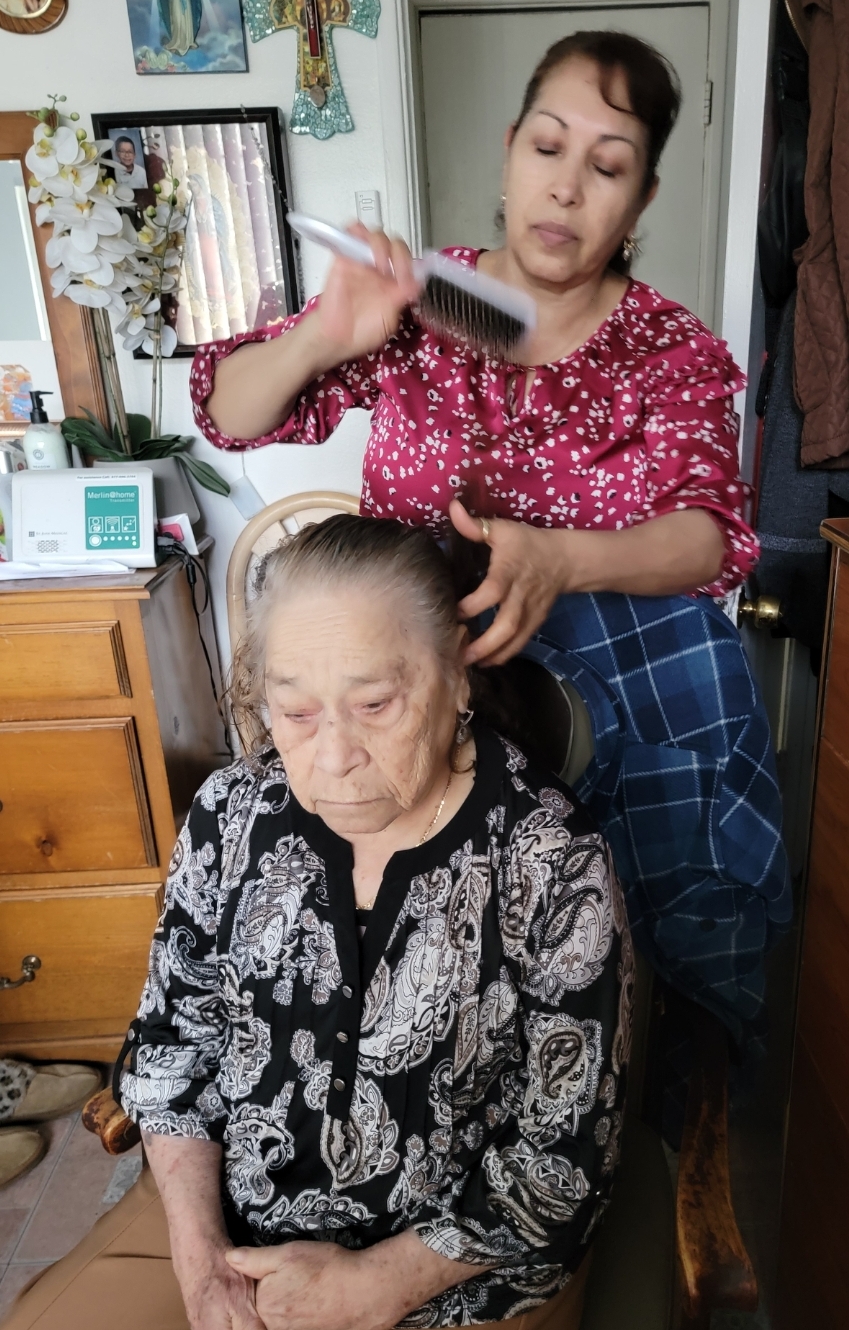
Prior to her participation in the Career Pathways Program, Maricela felt very stressed and did not understand her mother’s condition and why she reacted in certain ways. She learned many things in the CPP, such as how to read medicine labels, and how to tell if emergency services are needed or not.
Maricela said her instructors were excellent and added, “I hope that [the program] receives more funding because this is a big blessing for every one of us who will take care of our family members and other people.”
Maricela does not speak English. Without the option to take courses in Spanish, she could not benefit from the free training. Maricela compares her situation before this training as being a soldier without weapons. After training, she now feels equipped with the proper knowledge necessary to give her mother the highest quality of care she can.
Many IHSS providers also benefit from CCA’s Armenian and Russian language CPP courses such as Ruzan Samvelyan, who moved from Europe to the United States seven years ago. With a lifelong dedication to education, Ruzan previously worked as a supervisor for 160 schools in Yerevan, Armenia.
After moving to California, her educational journey traveled a different path. She became a caregiver when her husband was diagnosed with cancer.
Ruzan naturally wanted to learn as much as she could to provide the best care possible in her new caregiving role. Fluent in Armenian and Russian, she took courses in both languages. Speaking of fellow caregivers in her Armenian community in California, Ruzan says, “A lot of people who moved from Armenia to the United States don’t know English. It’s really hard to learn English, but they need to have this knowledge because it helps. It helps a lot.”
Personal Fulfillment and Job Satisfaction
When caregivers are equipped with training in their native languages, they can navigate caregiving scenarios with greater ease. This fosters a sense of professional fulfillment and job satisfaction and helps them better meet the needs of their consumers.
“For me, there was a lot of useful and necessary information, not only for my work but also for me, personally,” said caregiver Anna Nadejda. Anna took CCA’s CPP courses on traumatic brain injuries, cardiovascular disease, and autism spectrum disorder in Russian. “The most important thing is that it is easier to understand this amazing material provided by [CCA] in my native language,” she said.
Related Reading:
CCA Training May Reduce ER Visits, Healthcare Costs



